[Expert’s Answer] Why are there blackheads on the nose?
Blackheads are often a significant concern for many people and can be challenging to treat completely. However, when you understand the reasons why are there blackheads on the nose, you can fully explore how to treat and prevent them. The following article will help you explore the causes and treatment of blackheads. Stay tuned!
What are blackheads?
Blackheads are the result of blocked hair follicles, but they do not cause inflammation. The formation mechanism of blackheads is related to the overactivity of the oil glands on the skin when the oil cannot escape the follicles due to dirt, dead skin cells, makeup products, and bacteria. Blackheads turn dark when the blemish in the follicle comes into contact with the air and undergoes oxidation.
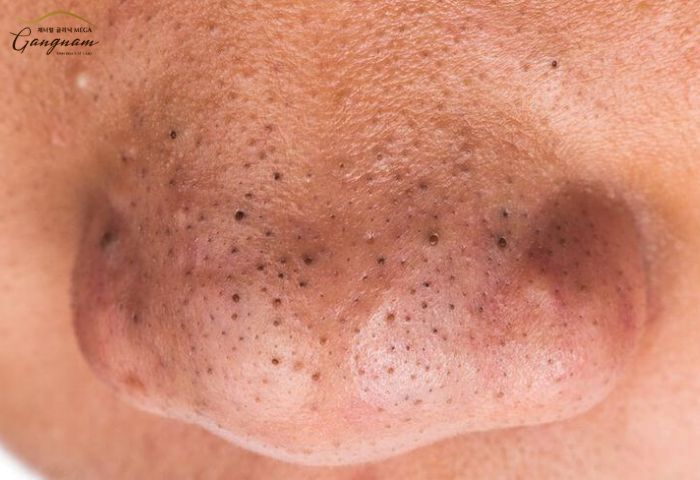
Mụn đầu đen là gì?
Blackheads are usually small, measuring about 1mm, and have a black or darkened plug on the skin’s surface. They often do not cause pain or redness like cystic acne. However, if you squeeze blackheads, they may become more severe, leading to inflammation and developing into pimples or pustules. Blackheads commonly appear on the face, especially in the nose area. Additionally, they can appear on the back, chest, neck, shoulders, or arms. Blackheads can occur on all skin types, including oily, normal, and dry skin.
They tend to accumulate more in the nose area because it has the most active oil glands, making it susceptible to bacteria and dirt. This area is also more prone to clogged pores due to its thin skin and increased exposure to sunlight, making it more vulnerable than other skin areas and easier to be attacked by bacteria.
Why do blackheads appear on the nose?
To determine effective and suitable treatments for blackheads based on different skin types, understanding the causes of this condition is crucial. The main causes include:
Overactive sebaceous glands
Overactive sebaceous glands lead to the excessive production of sebum on the skin, creating favorable conditions for clogged pores. The heightened activity of these glands can contribute to an ideal environment for dirt and bacteria to adhere to the skin, resulting in the formation of blackheads.
Poor and inappropriate diet
Regular consumption of spicy and oily foods, as well as drinking sugary beverages, alcohol, beer, and similar products, can stimulate the strong activity of sebaceous glands, creating favorable conditions for the development of blackheads on the skin.
Inadequate water intake
Not providing enough daily water intake can also lead to blackheads. Water plays a vital role in the body’s processes, including removing debris and waste from the skin. Water helps flush sebum and dirt on the skin surface through sweat glands, and insufficient water intake can impact this process, leading to the formation of blackheads.
Improper work and rest routines
Habits like staying up late, lack of sleep, stress, and unstable moods also contribute to the appearance of blackheads. Additionally, the menstrual cycle affects the hormones of women, causing pores to produce more sebum and increasing the likelihood of blackheads.

Tại sao lại có mụn đầu đen ở mũi?
Misuse of medication
The use of certain drugs or skincare products containing ingredients that may be harmful to the skin can also stimulate the activity of pores more strongly, leading to the appearance of blackheads.
Hormonal changes
Why are there blackheads on the nose? Changes in androgen hormones during puberty can increase sebum production, leading to the appearance of blackheads, especially on the nose. Additionally, hormonal fluctuations during pregnancy, menstrual cycles, or the use of contraceptives can also cause this condition in women.
Skincare products
Using inappropriate skincare products or those containing acne-prone ingredients can lead to the blockage of pores.
Incorrect facial hygiene
Failure to regularly wash or exfoliate the face can create favorable conditions for the accumulation of dead skin cells, sebum, and bacteria on the skin and inside the pores. For men, activities like shaving may open hair follicles and contribute to the occurrence of blackheads.
How to treat blackheads at home?
To treat blackheads at home, you have various options depending on your skin condition:
- For mild blackheads: A common treatment is to use over-the-counter products containing ingredients such as salicylic acid and benzoyl peroxide. These products are often available in the form of creams, ointments, or soaps, and you can use them to treat blackheads on the nose, cheeks, or any area with blackheads.
- For severe blackheads or those accompanied by inflammation: If over-the-counter products do not achieve the desired results, you should visit dermatology clinics to use stronger medications. These medications often contain forms of vitamin A such as tretinoin, tazarotene, and adapalene, and they can prevent pore blockage and promote the regeneration of skin cells.
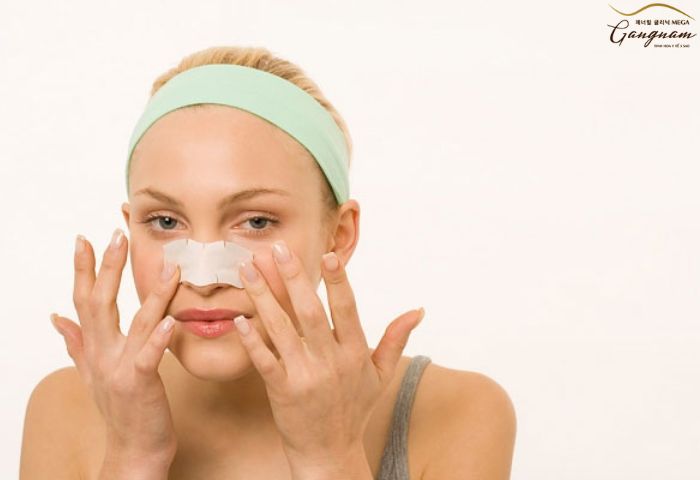
Cách trị mụn đầu đen tại nhà
In addition, you can try the following natural remedies:
- Toothpaste: Use a small amount of toothpaste without baking soda or strong abrasives, apply it to blackheads, leave it on for 10-15 minutes, and then rinse off with warm water. Perform this treatment at least 1-2 times a week, and not too frequently to avoid drying out the skin.
- Honey: Apply warm honey to the area with blackheads, leave it on for about 10 minutes, and then rinse it off with warm water. Honey has antibacterial properties and can help soften and brighten the skin.
- Egg White: Separate the egg white, apply it to blackheads, wait for 10-15 minutes, and then rinse it off. This method not only helps treat blackheads but also leaves the skin soft and radiant.
When should you consult a Dermatologist?
Self-treating blackheads at home can be a solution for mild cases without signs of inflammation. However, you should consider consulting a dermatologist when:
- Blackheads do not improve after 4-8 weeks of using over-the-counter skincare products.
- Blackheads become inflamed, swollen, red, and contain pus. This can lead to scarring and pigmentation issues if not treated promptly.
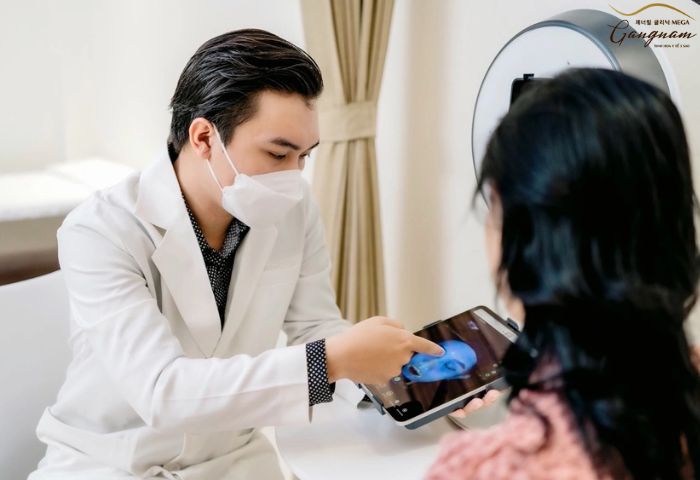
Khi nào nên thăm khám với bác sĩ Da liễu?
Visiting a dermatologist will help you identify the underlying causes of blackheads and receive advice and guidance on suitable skincare. Dermatologists possess in-depth knowledge and expertise in skin care and can suggest appropriate treatment methods or products based on your skin condition. This ensures that you are treating blackheads correctly and achieving the best results.
Readers can rest assured when seeking consultation for blackheads and overall facial skincare with the specialized team of doctors at Mega Gangnam. Among them, doctor Pham Thu Phuong is highly regarded by many.
For direct advice from dermatologists on issues related to post-blackhead extraction skincare, please call the hotline at 093 770 6666 or click on the REGISTER FOR DOCTOR CONSULTATION button to receive free assistance and answers.





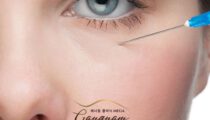
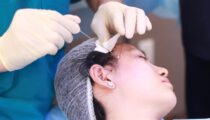

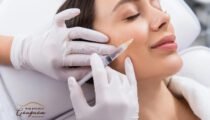

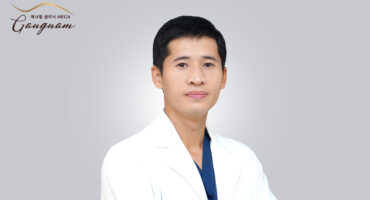
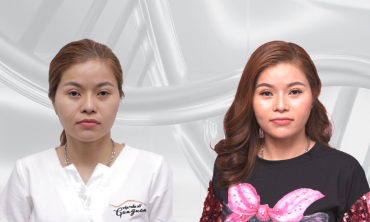


Leave a Reply